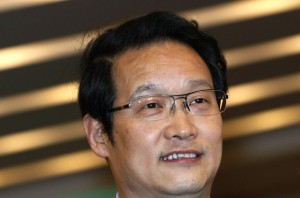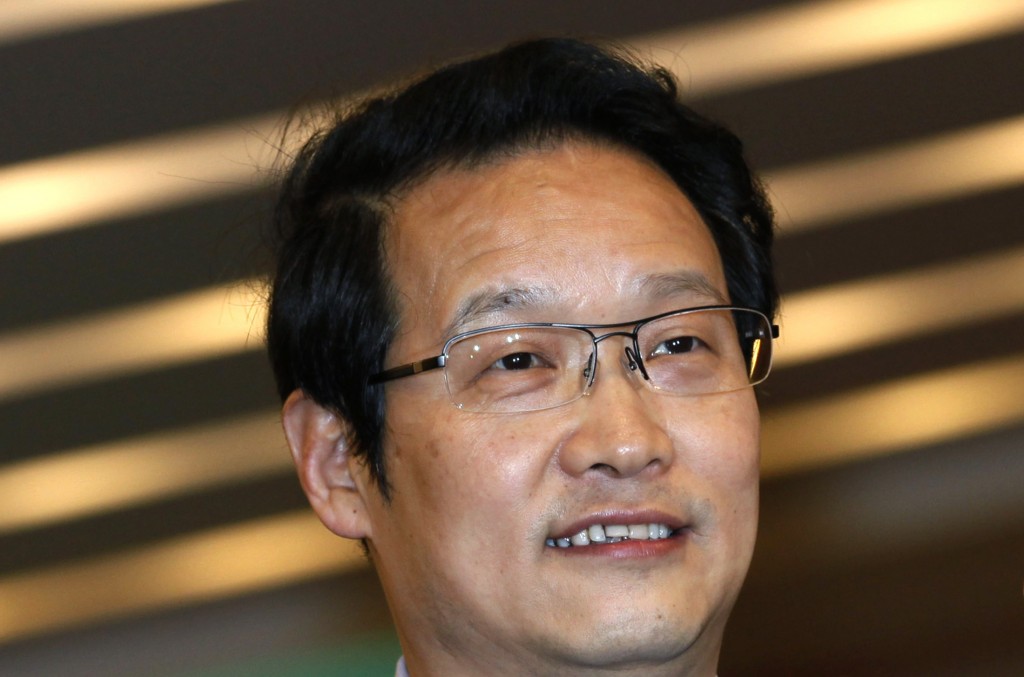Xiang Junbo, the man named on Saturday to be China’s insurance regulator, recently led the country’s third-largest lender from near insolvency to a record IPO with assets worth more than India’s national economy.
Now Xiang, a war veteran and screenwriter turned banker will turn again — to insurance as chairman of the China Insurance Regulatory Commission, or CIRC.

China’s insurers are also diversifying into businesses such as banking, a process in which Xiang’s tenure as head of Agricultural Bank of China will be of help.
Xiang, 54, resigned as chairman of Agricultural Bank of China on Friday after leading the bank as chairman since 2009. He had joined as one of its governors in 2007 when it was considered to be almost insolvent.
He built it into a powerhouse that is among the world’s top 10 banks by market value — along the way offloading 810 billion yuan ($120 billion) in bad loans to a government-backed asset management company and guiding the lender through what was at the time the world’s biggest IPO.
A former No. 2 at both the central bank and the National Audit Office, Xiang received a bachelor’s degree in finance from Renmin University and a master of economics from Nankai University, according to chinavitae.com. He also holds a doctorate in law from Peking University.
Born in 1957 in Chongqing, China’s wartime capital, Xiang became a farmer in his teens, having taken up Chairman Mao Zedong’s call for young people to go to the countryside during the tumultuous days of the 1966-76 Cultural Revolution.
WAR VETERAN
He joined the People’s Liberation Army at age 22 and fought in the brief but bloody Sino-Vietnamese border war in 1979. He was wounded in the leg and won a Second-Class Merit for his bravery, according to the China Youth Daily.
After his discharge and despite his love for literature and the arts, Xiang took his university professor father’s advice and became a finance major at prestigious Renmin University in Beijing in 1981.
Over the next two decades, Xiang’s focus on business served him well as China shifted from an emphasis on political campaigns to economic development.
He is well known for his by-the-book approach, which played a critical role in AgBank’s risk control and anti-corruption drive.
That seems to be behind his creative leanings, as he has written film scripts on graft and auditing, including the award-winning anti-corruption movie “The Crack.”
AgBank, founded in 1951 by Mao as the rural unit of the central bank, has 24,000 branches and employs more than 441,000 people — both more than any Chinese bank including Industrial and Commercial Bank of China and China Construction Bank, the world’s two biggest banks by market value.
Preferring to stay behind the scenes, Xiang has tended to let other executives be the public face of the bank, and not much is known about his management style or aspirations.
(Reporting by Jason Subler; Editing by Brian Rhoads)
Topics Agribusiness China
Was this article valuable?
Here are more articles you may enjoy.



 Employers Can’t Use Vicarious Liability to Block Negligence Claims, TN High Court Says
Employers Can’t Use Vicarious Liability to Block Negligence Claims, TN High Court Says  Vintage Ferrari Owners’ Favorite Mechanic Charged With Theft, Fraud
Vintage Ferrari Owners’ Favorite Mechanic Charged With Theft, Fraud  Viewpoint: Florida Insurance Market on the Mend
Viewpoint: Florida Insurance Market on the Mend  Cargo Owners in Baltimore Disaster Face ‘General Average’ Loss Sharing, MSC Says
Cargo Owners in Baltimore Disaster Face ‘General Average’ Loss Sharing, MSC Says 

